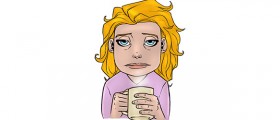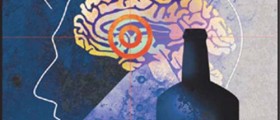
Caffeine and Humans
Caffeine is a psychoactive substancewhich can be found in many different plants innature. This substance has a special effect on our organism whichmakes the intake of it a daily routine for most of us. Namely, caffeine, when it gets into ourorganism, makes us more alert and concentrated,triggering blood flow increase, heart beat increase and a metabolismboost, which can make us more aware and capable of performing betterin whatever we do. Thus, we use caffeine in many forms, most usuallycoffee and tea, in order to get the boost necessary for our dailyobligation achievement. However, as it is the case with many thingsaround us, too much caffeine is bad for our health. There arenumerous negative effects excessive consumption of this substance maycause.
Caffeine Addiction
If we overindulge in the consumption ofthis substance, we can become addicted to it. This means that, if weever decide to stop consuming caffeine daily, we may experiencenumerous withdrawal symptoms, some being more serious than others.
People usually increase their caffeineconsumption due to the fact that they are unable to maintain theiralertness levels once the effect of their last dose fades away. Infact, a cup of coffee may affect your body for about 4 hours, afterwhich you need an additional boost. One by one, a person takes more andmore, becoming addicted. Then, the only way to stay healthy is toreduce consumption. However, since your organism has gotten usedto excessive consumption, you are bound to experience certain withdrawalsymptoms, once you stop providing it with caffeine.
Once the Caffeine Supply Stops...
Caffeine withdrawal symptoms kick inabout 20 hours after your last dose. They usually start withheadaches and drowsiness. Then, you might suffer from tiredness,fatigue and frustration combined with restlessness. Depression isalso known to be present during this time. Moreover, you might feel alack of concentration, followed by an increased presence of anxietyand insomnia.
Thus, it is best to cut the caffeineconsumption down gradually, decreasing dosage over the course of a week ortwo. Once you do that using this method, you shouldexperience less of the above mentioned withdrawal symptoms and manageto quit caffeine intake completely with much less effort. Still,prevention being the best cure, you are advised to consume caffeinein healthy dosage at all times.

















Your thoughts on this
Loading...